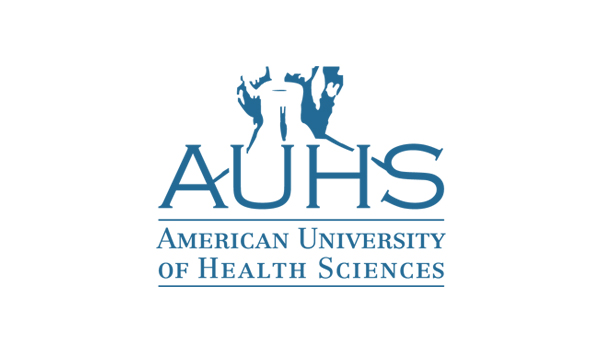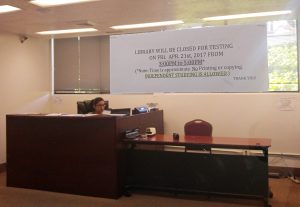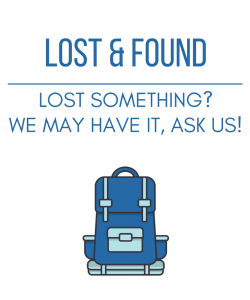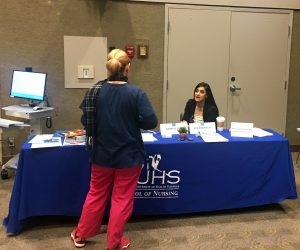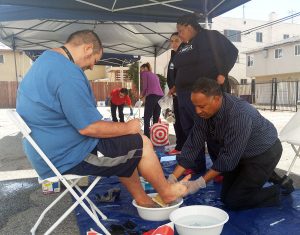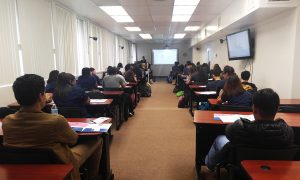Do Pharmacy Students Need Chemistry?
By: John V. Schloss, PhD,
Professor, Chair of Pharmaceutical Science, and Associate Dean of Research, AUHS
My experience in teaching introductory science courses to pharmacy students began in 1991. Before joining the University of Kansas School of Pharmacy (KU SOP) as Chair of the Department of Medicinal Chemistry, I had spent ten years as a professional scientist in the Central Research Department of DuPont and the last few years as Research Supervisor of the Enzyme Mechanisms Group.
Entering a classroom of 100 undergraduate B. Pharm. students was like jumping into a pool of ice water. It was immediately apparent that I spoke a language foreign to our first-year pharmacy students. Over time it became clear that many of the assumptions I had about what students did and didn’t know about science were incorrect. I assumed that students who had recently taken one year of general chemistry and one year of organic chemistry had a basic knowledge of the subject. While this proved to be correct for some students, for others, perhaps the majority, this proved to be a significant miscalculation. Despite passing the prerequisite chemistry courses, nearly half of our students knew little or no chemistry. Many first-year pharmacy students were not well prepared for courses like medicinal chemistry, pharmacology, pharmaceutics, or pathophysiology, all courses required by the Accreditation Council for Pharmacy Education (ACPE). Shortly after joining the University of Kansas, all pharmacy programs in the United States moved from Bachelor of Pharmacy degrees (B. Pharm.) to Doctor of Pharmacy degrees (PharmD), which became the entry-level degree for a professional pharmacist. As Chair of Medicinal Chemistry, I became involved in meetings to determine the necessary changes in the pharmacy curriculum for the new PharmD degree. One of the first decisions was to include biochemistry as an entry-level course in the new PharmD curriculum. Previously, biochemistry was a required prerequisite for acceptance into the KU SOP program. Students who took biochemistry before entering the program knew little or no biochemistry. Participants from the Department of Medicinal Chemistry decided that if the KU SOP redesigned the curriculum again, it would be wise to take ownership of organic chemistry since it was clear pharmacy students had not learned the expected material before matriculation.
What about modern PharmD programs?
Since 1991, US pharmacy schools have increased from 80 to over 140 ACPE-accredited programs. There has been a continuing trend away from the traditional role that pharmacy has played in maintaining strength in chemical science and toward an increase in physical assessments, patient counseling, vaccinations, and other areas traditionally covered by nursing, physician assistants, and physicians. The result is that many pharmacists, especially those from the newer pharmacy programs, have less command of the basic chemical sciences that have traditionally served as the underlying basis of pharmacy. Worse yet, in some instances, pharmacy graduates can be chemically illiterate, lacking the basic skills to understand and communicate the fundamental science component of therapeutic substances.
Increasingly, some students ask, “Teach me only what is necessary.” The problem with this request is that we never know what will be ‘necessary’ in the future for all students. Things change, and what is ‘necessary’ today may prove to be obsolete in later years.
Teaching the minimum ‘necessary’ today limits the career options for our graduates. In truth, it is impossible to teach only what is necessary. Much of what pharmacists need to know they learn after graduation. The best strategy is to teach our students how to learn and enable ‘life-long learning’, which requires that they have a solid foundation in the basic sciences, particularly the chemical and biological sciences. What if they do not know the ‘language’ of chemistry and biology? In that case, it becomes much more difficult to understand new material and research, learn, and apply new knowledge they encounter after graduation.
Teaching what is ‘necessary’ without a solid foundation in the basic sciences is training, not education.
Education at the doctoral level requires preparation of the student to become capable of independent, self-motivated, and self-initiated education. For the pharmaceutical sciences, a solid education in the chemical and biological sciences is necessary for independent, life-long learning.
Feedback from more than 2,000 students, post-graduation, during the past 30 years has strongly reinforced my attitudes surrounding the education of pharmacy students. While students may not appreciate the difficulty of learning basic science while in school, many come to appreciate the effort they spent learning the essential tools of independent, self-directed scholarship.
On August 12, 2022, one of my former PhD students, Dr. Sara Wu, gave a faculty-development presentation at AUHS, attended by faculty (SOP and SOM), AUHS pharmacy students, and colleagues from Charles R. Drew University of Medicine and Science (CDU), entitled: “New Drug Development from CMC (Chemistry, Manufacturing, and Control) Perspectives”, covering work she had carried out at Eisai, Wyeth/Pfizer, Cempra Pharmaceutics, G1 Therapeutics, and Celcuity Inc pharmaceutical companies. Dr. Wu is currently the Executive Director of Pharmaceutical Development at Celcuity, Inc, in Chapel Hill, North Carolina. Dr. Wu obtained her Ph.D. under the direction of her advisor, Prof. John Schloss, at the University of Kansas, Department of Medicinal Chemistry, and conducted postdoctoral work with Prof. Valentino J. Stella, University of Kansas, Department of Pharmaceutical Chemistry, working on the formulation of anticancer drugs.
Since Prof. Stella was a former student of the legendary Prof. Takeru Higuchi, ‘the father of physical pharmacy’, this makes her a ‘scientific granddaughter’ of the founder of pharmaceutics.
Dr. Wu has more than 20 years of work experience in the pharmaceutical industry. She has been leading the development and manufacturing of injectable drug products at various development stages, including preclinical, clinical, New Drug Application (NDA) registration, and commercial launch. In her talk, Dr. Wu shared what is critical for CMC development to achieve successful new drug approval. She also shared the exciting and challenging aspects of the developed anticancer and antibiotic drug products. After her talk, Prof. Schloss asked two questions: “Do you hire pharmacists at Celcuity, Inc?” and “Do they need to know chemistry?” The answer to both questions was: “Yes.” Pharmacy students have career opportunities beyond working in a retail pharmacy. Former students working in retail pharmacy for more than ten years frequently express disappointment at the routine nature of this kind of work. The ability of these students to go on to other jobs they find to be more fulfilling depends, in many cases, on a solid foundation in the basic sciences. 




